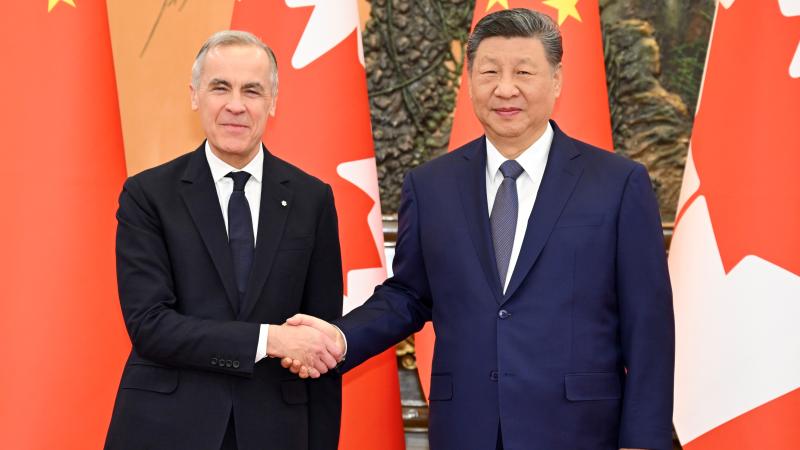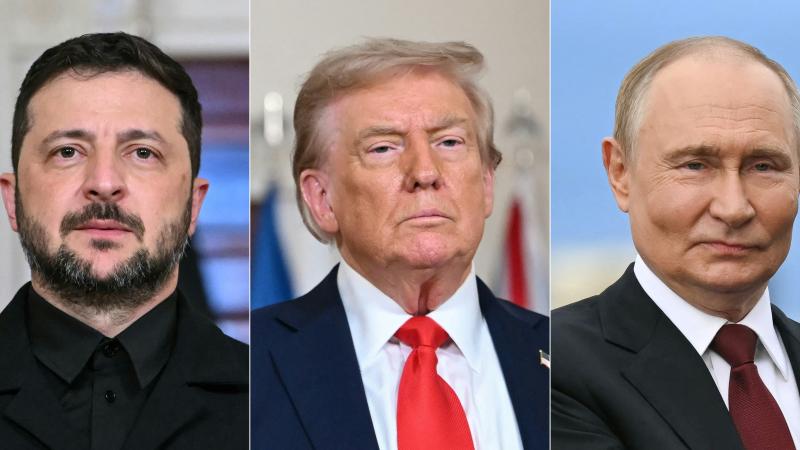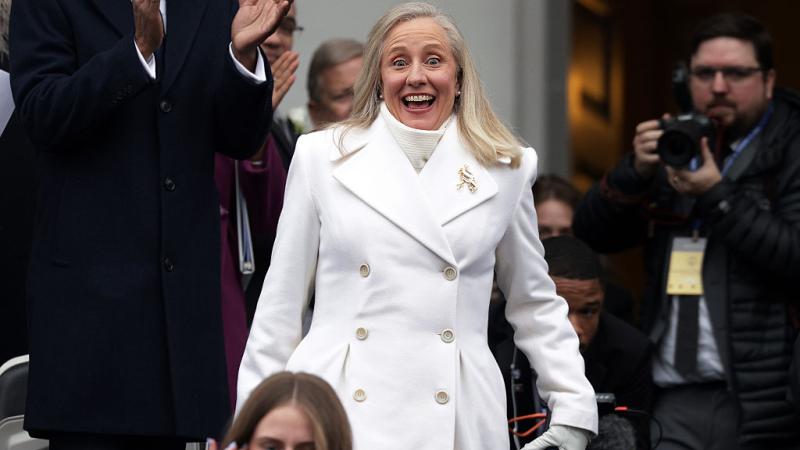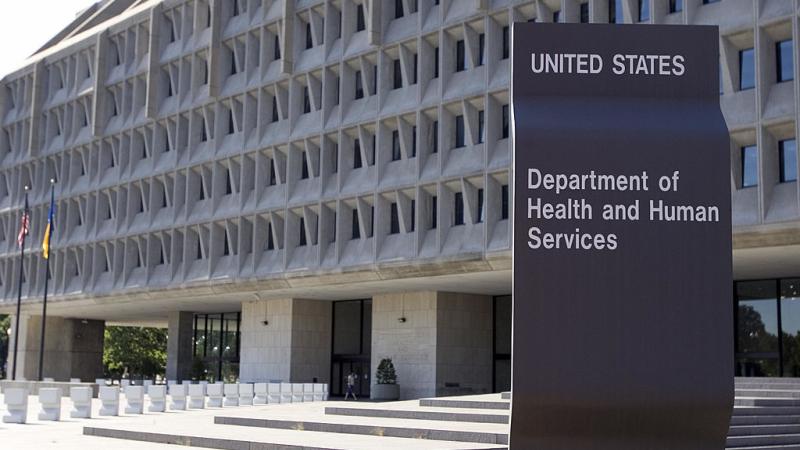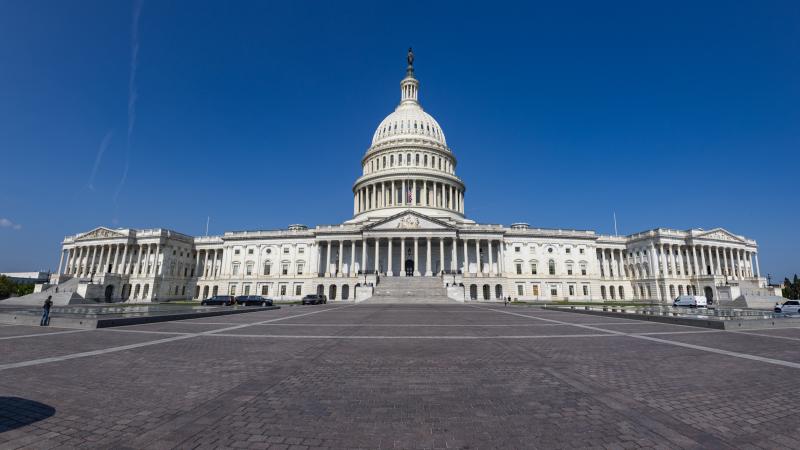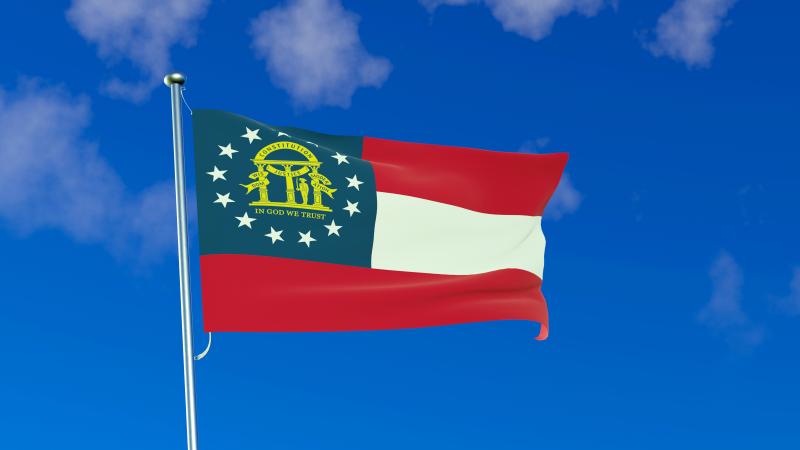Optimistic Trump to meet with China’s Xi, talk about potentially ‘fantastic’ trade deal
China and the U.S. have been locked in a trade war since early in President Trump’s second term. The two sides have long been engaged in trade economic broadsides with tariffs and export controls.
Fresh off what many call a diplomatic triumph in the Middle East, President Donald Trump heads to Asia this week and will meet with Chinese leader Xi Jinping, who has resisted Trump’s efforts to secure a trade deal as a deadline for more tariffs is fast approaching.
President Trump plans to meet with his Chinese counterpart next week on the sidelines of the Asia-Pacific Economic Cooperation being held in South Korea. Both the South Korean government and the White House confirmed the meeting, which will be the first time the two leaders have met face to face since 2019 before the COVID-19 pandemic.
“I think we are going to come out very well and everyone’s going to be very happy,” Trump said on Thursday, striking an optimistic tone ahead of the meeting.
There is a ticking clock
The meeting comes as the world’s two largest economies are balancing a delicate trade truce set to expire in early November. Negotiations have been challenging amid restrictive measures imposed by both sides, including Chinese curbs on rare earth mineral exports and steep U.S. port use fees.
The American president hopes to secure a trade deal with the Chinese before that deadline. However, Xi Jinping appears to be adopting a confrontational approach that concedes little. Every round of tariffs or export restrictions imposed by the Trump administration this year was met with Chinese retaliation that forced both sides to back away from the brink.
President Trump’s trip to Asia also comes as he faces steep challenges at home. An ongoing government shutdown has paralyzed Washington. Many government employees have gone without pay and so will the military by the end of this month.
The highly anticipated Trump-Xi meeting almost did not take place.
Tariffs and immediate retribution
The United States and China have been locked in negotiations since the beginning of President Trump’s second term over the persistent trade deficit with China and unfair trade practices. After taking office in January, a few weeks later President Trump imposed several tariffs on China for its failure to combat fentanyl precursor chemicals, targeting steel, automobiles, and other goods that once reached over 100%. China retaliated by raising its own tariffs on U.S. goods.
Data also show that the January market numbers were mildly up across the board. The S&P 500 gained 2.70%, The Dow Jones Industrial Average gained 4.70%, and the Nasdaq added 1.66% that January.
Then, in June, China implemented its first round of restrictions on rare earths. The move prompted the Trump administration to negotiate a temporary 90-day tariff pause that capped the duties at 30% while broader trade negotiations remained ongoing. China did not immediately implement restrictions on rare earths, but instead a new set of comprehensive regulations on rare earth administration which took effect on October 1, 2024.
However, tensions rose rapidly over the course of October. Trump called out China for refusing to buy significant quantities of American-grown soybeans, his administration imposed new port fees on China-linked vessels to help encourage U.S. shipbuilding, and blacklisted Chinese drone companies for links to Iran.
Then, on Oct. 9 China announced sweeping export controls on vital rare earth minerals, battery components, and other industrial materials, tightening the screws ahead of the proposed meeting between the world leaders. The industry is a key pain point for the U.S. ahead of trade negotiations because the American industry lags far behind China in rare earth extraction and refining.
Indeed, the Chinese likely learned from the prior rare earths restrictions earlier this year, which successfully staved off further escalations and forced the Trump administration to the negotiating table to prevent supply disruptions.
Academic: China's "Sweeping control"
“This is a very big deal. China has asserted sweeping control over the entire global semiconductor supply chain, putting export license requirements on all rare earths used to manufacture advanced chips,” Dean Ball, senior fellow at the Foundation for American Innovation, posted to X after the controls were announced earlier this month.
Ball also said that the move, which comes ahead of the meeting between Trump and Xi Jinping, was likely aimed at creating leverage for the trade and tariff negotiations between the U.S. and China.
Flexing its rare earths muscles has been one of China’s only moves to stave off further tariff hikes and exert leverage over the Trump administration because it dominates the industry so thoroughly.
In 2023, China accounted for 69% of the world's production of rare earth elements, far ahead of the United States’ 12% share. Rare earths are a family of 17 metals that have similar properties valuable for everything from advanced magnets to semiconductor manufacturing.
The restrictions almost sunk the opportunity for a face-to-face meeting between world leaders.
"I have not spoken to President Xi because there was no reason to do so. This was a real surprise, not only to me, but to all the Leaders of the Free World," Trump said after China announced the strict export controls. "I was to meet President Xi in two weeks, at APEC, in South Korea, but now there seems to be no reason to do so."
Trump tries to use the bully pulpit
President Trump also threatened to retaliate further against the Chinese economy with a new 100% tariff on all Chinese goods. The American leader also said he would be willing to impose further technology export limits. The U.S. already restricts the export of the most advanced semiconductors to China.
The Chinese have projected resolve in the face of Trump’s threats, issuing statements such as "China urges the U.S. to promptly correct its erroneous practices,” Chinese Ministry of Foreign Affairs spokesman, Lin Jian reportedly said earlier this month. “If the U.S. insists on going its own way, China will certainly take resolute measures to safeguard its legitimate rights and interests.”
Despite the firm negotiating strategy of the Chinese government, President Trump remains optimistic that he will be able to secure a deal on “everything” in his personal meeting with President Xi.
“We’ll make a deal on, I think, everything,” Trump told reporters on Wednesday. “I think we’re going to make a deal on soybeans and the farmers. I think we’re going to make a deal on maybe even nuclear.”
In a meeting earlier in the week with the Prime Minister of Australia, the president said he believes the U.S. and China will reach a “fantastic deal.”
“It’s going to be a great trade deal. It’s going to be fantastic for both countries, and it’s going to be fantastic for the entire world,” Trump said.
The Facts Inside Our Reporter's Notebook
Links
- diplomatic triumph
- Trump said on Thursday
- imposed several tariffs on China
- called out China
- imposed new port fees
- blacklisted Chinese drone companies
- announced sweeping export controls
- posted to X
- accounted for 69% of the world's production
- Trump said
- Chinese Ministry of Foreign Affairs spokesman Lin Jian
- remains optimistic
- a meeting earlier in the week
